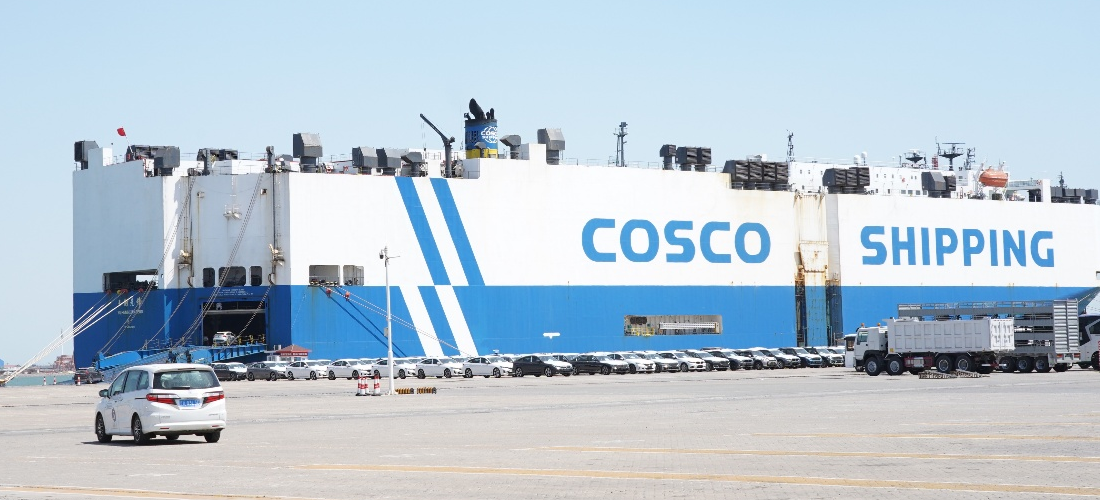
Caoa, Hyundai announce new agreement to import and produce cars
Mar, 01, 2024 Posted by Gabriel MalheirosWeek 202409
After 25 years of partnership, the Brazilian group Caoa and South Korean manufacturer Hyundai announced on Thursday (29) a significant revision of their contractual relationship for operations in Brazil. The agreement redefines the roles of both parties: Caoa, established by the late businessman Carlos Alberto de Oliveira Andrade in 2021, will assume new duties, whereas Hyundai Motor Brasil (HMB), the subsidiary of the Asian automaker, will oversee the import and distribution of the brand’s vehicles in Brazil.
This updated business arrangement received approval from the Administrative Council for Economic Defense (CADE) after three years of negotiation. Carlos Alberto de Oliveira Andrade Filho, the president of the Caoa group, clarified, “Some might interpret this as a split, but in reality, Caoa and Hyundai are drawing closer.” Airton Cousseau, CEO of HMB, highlighted the mutual benefits, saying, “The deal benefits both sides equally, allowing for growth and the introduction of new products, leveraging Caoa’s domestic production capabilities.”
Under the revised agreement, Caoa will transfer the complete import and distribution process of both domestic and imported Hyundai vehicles to HMB. In exchange, Caoa will gain a financial interest in vehicle imports and will continue to manufacture Hyundai’s products as specified by the parent company.
Previously, Caoa managed the sales of all Hyundai imports in Brazil and manufactured models like the Tucson SUV and the HR and HD trucks at its Anápolis plant in Goiás. Meanwhile, HMB produced the national compacts HB20 (hatch and sedan) and Creta in Piracicaba, São Paulo, operating independently. The former business model led to confusion and even legal disputes.
The new contract aims to streamline the entire operation, assigning HMB the task of handling imports and tasking Caoa with vehicle assembly in Anápolis. This strategy will alleviate pressure on the Piracicaba plant, which has been operating at full capacity across three shifts for years. In 2019, HMB expanded its production capacity in Piracicaba from 180,000 to 200,000 vehicles annually, with no possibility for further expansion due to geographical constraints.
Moreover, Hyundai’s dealership network will now offer a unified portfolio. Previously, only Hyundai Caoa dealerships sold the brand’s imported models, while HMB outlets were limited to the HB20 family and the Creta. Following this agreement, all 250 sales points will provide the same range of products.
As a result, Hyundai Motor Brasil will be responsible for all the brand’s launches in Brazil: the imports (previously handled by Caoa), the HB20 family and the Creta (already under its responsibility), and models that CKD may assemble in Goiás. It will also be responsible for all after-sales parts distribution.
To unveil the restructuring, Caoa and HMB organized a lunch for journalists at the Oliveira Andrade family residence, attended by Mr. Oliveira Andrade Filho and Mr. Cousseau. Hosting the event at this location was significant for two reasons: it honored the tradition of Caoa’s founder, who often conducted meetings at his home, and it underscored the renewed harmony between the two companies.
“The new agreement enables Hyundai to benefit from the tax incentives granted to factories located beyond the South-Southeast axis,” stated the president of Caoa. While Hyundai has not disclosed which models will be imported or locally assembled—with an announcement planned for March 6—Mr. Cousseau indicated a focus on SUVs and pickups in the C and D segments, targeting the compact-medium and medium categories. These vehicles are larger and more premium compared to those HMB produces in São Paulo, aiming for production in the Brazilian Midwest. “Take the Tucson, for example; it’s a well-regarded model we intend to continue leveraging,” he mentioned. The plan also encompasses the importation and local manufacturing of electric vehicles, with the Anápolis plant ready to produce plug-in hybrid models for Hyundai, added Mr. Andrade Filho.
Since 1999, when Caoa began its representation of Hyundai in Brazil, it has been the exclusive importer, successfully elevating the brand’s prestige and building the Anápolis plant in 2007. This plant initially produced the first generation of the Tucson SUV and the HR and HD trucks, later adding the ix35 model. However, with Hyundai’s establishment of HMB and its Piracicaba factory for the HB20 family, a unique dual representation emerged, leading to a legal dispute over contract renewal in 2018. Carlos Alberto de Oliveira Andrade contested Hyundai’s attempt to shorten the new agreement, arguing that economic changes hindered performance targets. In July 2021, shortly before his death, a Frankfurt arbitration court ruled in favor of Caoa, extending the contract until 2028. This week’s announcement indicates a mutual agreement to modify the current contract.
This new arrangement with Hyundai does not affect Caoa’s operations with Chery, including imports and local production in Anápolis. Recently, the Caoa Chery joint venture introduced a new version of the Tiggo 7 SUV and announced the upcoming domestic production of the Tiggo 8 Pro Hybrid. “This agreement with Hyundai will also benefit our partnership with Caoa Chery, providing financial relief and increasing production scale at the Anápolis plant, which is advantageous in terms of costs,” explained Mr. Andrade Filho.
Source: Valor International
Click here to read the original material: https://valorinternational.globo.com/business/news/2024/03/01/caoa-hyundai-announce-new-agreement-to-import-and-produce-cars.ghtml
-
Economy
May, 25, 2021
0
China sends warning signal that could shake global commodity boom
-
Ports and Terminals
Jul, 26, 2022
0
Karpowership vessels arrive at the Port of Itaguaí
-
Economy
Jun, 13, 2024
0
World Bank says global growth stabilizing but below pre-COVID levels
-
Grains
Apr, 17, 2023
0
Brazil wheat crop seen at record, yet below domestic demand -StoneX

